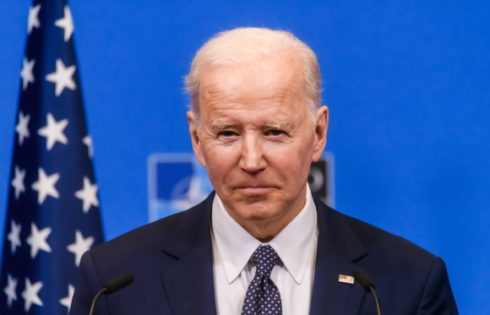Advocates for racial unity question if inclusion program ‘actually necessary’
The National Collegiate Athletics Association just started an Inclusive Leaders Program to help schools increase diversity in their sports programs by recruiting and retaining more “student-athletes of color.”
However, some advocates for racial unity are questioning the necessity of the program.
Launched this spring in partnership with the sports diversity consulting group Return On Inclusion, the Inclusive Leaders Program offers free workshops to help administrators and coaches to “better meet the needs of student-athletes around diversity, equity and inclusion issues,” the NCAA website states.
Tiffany Alford, a workshop facilitator and director of community engagement and inclusive excellence at the University of Massachusetts at Boston, said one of their goals is to help athletics program leaders understand how to create a safe, inclusive atmosphere for student athletes, according to an NCAA news release.
“I feel like we all miss out when we don’t get diverse perspectives in our conversations, in our locker rooms, in our boardrooms. So be the change agent,” Alford said in the news release.
A number of schools already have joined the program, including Lawrence University in Wisconsin and Luther College in Iowa.
The College Fix contacted the NCAA and program leader Eric Hartung twice in the past two weeks asking about their goals and their response to those who say such initiatives may be unnecessary or divisive, but neither responded.
Mike Markham, program coordinator at Color Us United, an organization that works to end racial division in America, questioned the necessity of the program when contacted by The Fix.
“While these types of programs do – by literal definition – promote inclusion, one must ask if they are actually necessary,” Markham said in a recent email. “Are NCAA institutions claiming that such initiatives are necessary because their campuses are not already welcoming and accommodating to people of certain complexions?
“If a particular school needs a workshop or training program to help attract or retain minority student athletes, maybe there are bigger issues on campus,” he said.
MORE: No black athletes have taken up NAACP Florida boycott: analysis
Also asked about the program, Ryan Bomberger, author of the book “Not Equal: Civil Rights Gone Wrong” and co-founder of The Radiance Foundation, a conservative education organization, questioned the NCAA’s commitment to “inclusion.”
“The same collegiate sports governing authority that allows women to be displaced and replaced by men in women’s sports is promoting so-called ‘inclusion’ in yet another DEI program …” he told The Fix in a recent email.
Yet, “minority representation is far greater than our percentage in the population (13.6%) in both DI (20%) and DII (19%) schools and is not that far behind in DIII schools (10%),” Bomberger said.
In the NCAA news release, Return on Inclusion founder Nevin Caple explained why the program is important.
“The information gathered through focus groups and surveys allowed my team to examine structural and cultural barriers in Division III athletics,” Caple said. “It was important to center the voices of student-athletes of color at every stage of development and provide tangible strategies for conference and campus leadership to address these barriers.”
Caple said program facilitators are committed to educating their colleagues about inclusion in athletics.
“It takes a certain kind of courage and compassion to square your role in athletics with a duty to lead inclusively,” Caple said.
However, Bomberger noted students of color are being singled out in the program.
“Higher education, though, in defiance of the recent Supreme Court ruling on race-conscious admissions, wants to keep funding programs that are separate and unequal. Treat every student equally,” he told The Fix.
MORE: Grad events for black, LGBTQ students back on schedule at UT-Austin
IMAGE: pixelheadphoto digitalskillet/Shutterstock
Like The College Fix on Facebook / Follow us on Twitter






Please join the conversation about our stories on Facebook, Twitter, Instagram, Reddit, MeWe, Rumble, Gab, Minds and Gettr.